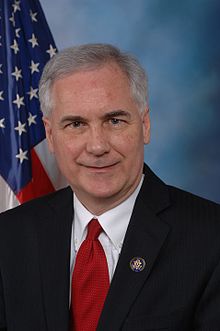Washington, DC…I am convinced that the business side of this bill will produce dramatic growth for the national economy. However, I believe the personal income tax side does significant harm, particularly to many families in high-cost, high-tax states like California. This was entirely avoidable, if higher priority had been given to family tax relief than was given to tax simplification. The current major deductions for such expenses as mortgage interest, state and local income taxes, medical and casualty expenses and student loan interest could all have been retained in the bill, while still providing a significant, across-the-board reduction in all tax rates, assuring that no taxpayer was left behind.

Unfortunately, the amendment that I offered to do so failed, and despite many discussions, I have yet to receive assurances that the final bill will protect every taxpayer against tax increases.
I favor a flat tax, but families make the most important financial decisions in their lives based in part – sometimes in large part — on the tax deductions available to them. Transitioning to a flat tax requires a very gradual phase-out of deductions over a long period of time to prevent trapping taxpayers in a bait-and-switch world where deductions they had counted on suddenly disappear. This bill ignores that necessity.
This is particularly harmful to Californians who suffer under policies that have grossly inflated the cost of housing. Even though the mortgage interest deduction is grandfathered for existing mortgages, the limitation will make home ownership less affordable for future home buyers and devalue the asset for current homeowners. Yes, that will cause home prices to decline, but for all the wrong reasons.
The state and local tax deduction is removed under this bill, further disproportionately affecting Californians. The rationale is that taxpayers in low-tax states subsidize the high spending in liberal states. But this ignores a central tenet of federalism: that governments closest to the people should make most of the decisions and provide most of the services, and thus have first call on tax revenues – the federal government is supposed to get in line behind them. The bill turns this principle on its head and amounts to a double-taxation of every dollar government claims from family earnings.
Other provisions permanently eliminate personal tax exemptions, replacing them with a personal tax credit. Unfortunately, the credit goes away in five years, meaning that many families seeing a tax cut this year may end up paying higher taxes in future years. The Joint Committee on Taxation estimates that nearly one fifth of families earning between $75,000 and $100,000 will see an average $500 annual tax increase by 2027.
It is claimed that the average taxpayer will see their taxes reduced. This invokes the mystery of the 6-foot man who drowned in a pond whose average depth was 5-feet. It is undeniable that a significant portion of taxpayers will see an increase in their taxes, particularly in California, and particularly over time as the temporary relief provisions phase out.
Nor are the personal income tax provisions likely to produce much economic growth. Productivity occurs at the marginal rate – how much your next dollar is taxed. By leaving the top marginal tax at 39.6 percent – and indeed, creating a new bubble bracket of 46 percent — the economic advantages are severely limited.
Congress has refused to cut spending, and spending drives both debt and taxes. Economic growth is the only other way to address our approaching debt crisis. Increasing the debt to produce growth is only justifiable if the tax reform maximizes growth potential. The personal income tax provisions fall short.
These infirmities might still be justifiable in exchange for the positive economic impact of the business tax provisions in the bill. Tragically, though, they are unnecessary and could easily have been fixed in a manner that guaranteed no taxpayer is made worse off.
Proponents argue this is a work in progress and the bill can be improved in conference. I hope that is the case and eagerly await it. Unfortunately, the House must decide the merits of the bill before it today – not what might come to it in the future. It is rare for the conference process to improve bills, and a commitment to provide taxpayer protections in the final version has not been forthcoming. In this case, the Hippocratic oath makes for good legislative advice: “First, do no harm.” Particularly for California, this bill fails that test.
###



Thank you Congressman McClintock for thinking of your constituents first. With government so divided it is good to have Representatives that work for the people first and party second. Great job!